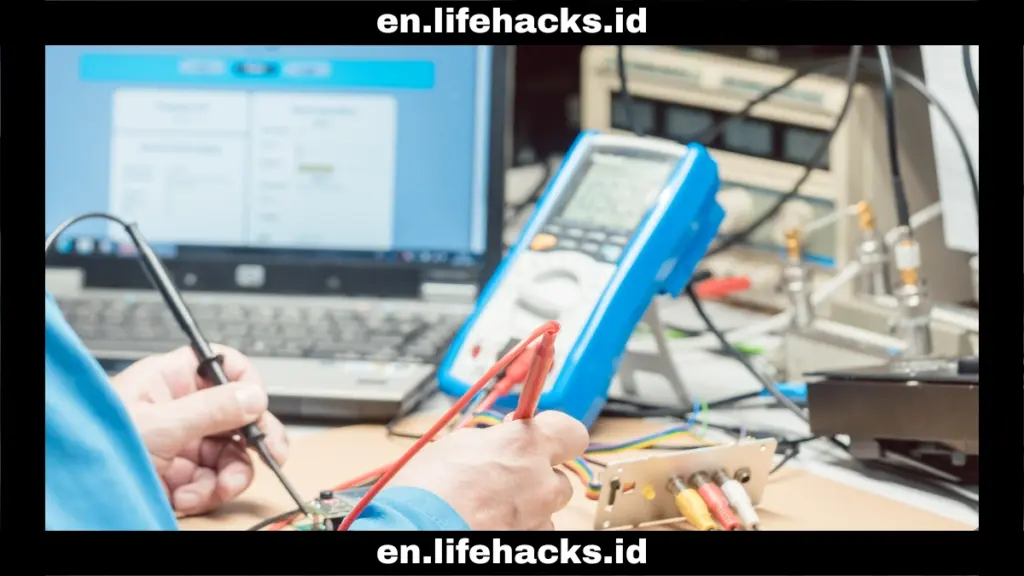Electrical safety is a crucial aspect in the growing use of electronic devices. Therefore, electrical safety testing is essential to ensure that products can operate optimally without posing potential hazards and meet all applicable safety standards.
Devices that want to enter the global market must undergo different electrical safety compliance processes in each country. This process is a form of permission to import devices. Approved products do not pose potential hazards such as electrical leakage, risk of electric shock, or the possibility of short circuits.
Manufacturers, distributors, and importers must understand all the various electrical safety compliance requirements in each country. Meeting these requirements will facilitate the trade of products in the international market.
Why Electrical Safety Matters

To ensure that electrical devices do not pose a risk to users or the surrounding environment, electronic devices must undergo electrical safety testing. All electronics industries that use electrical devices are required to undergo this testing process.
The benefits of electrical safety testing include ensuring device safety, facilitating the easy acceptance of products in the international market, and building trust in the device brand. Additionally, devices that pass testing will protect users from the risks of electric shock and fire. This can occur due to electrical leakage and excessive electrical current.
Common standards
Electrical safety compliance is assessed against international standards. The following are the common standards used:
- International Electrotechnical Commission (IEC)
- Underwriters Laboratories (UL)
- International Organization for Standardization (ISO)
- European Union (EU) Low Voltage Directive (LVD)
- International Electrotechnical Commission (IECEE) CB Scheme
- Non-Random Two Liquid (NRTL) United States (US)
The Product and Typical Safety Standards
| Product Category | Typical Safety Standards |
| IT & AV Equipment (Laptops, PCs, monitors, routers, smart speakers) | IEC/EN 62368-1 |
| Household Appliances (rice cookers, blenders, air conditioners, refrigerators) | IEC 60335 series |
| Lighting Products (LED bulbs, lamps, luminaires, drivers) | IEC 60598 / IEC 61347 |
| Power Supplies & Chargers (AC adapters, SMPS, USB chargers) | IEC/EN 62368-1 + IEC 61558 + IEC 60950 (legacy) |
| Battery-Powered Consumer Devices (smart gadgets, toys, wearables) | IEC 62368-1 + cell/pack: IEC 62133 |
| Industrial & Laboratory Equipment | IEC 61010 Series |
| Medical Devices (Electrical) | IEC 60601-1 |
| Small Motors & Tools (power tools, gardening tools) | IEC 60745 / IEC 62841 |
| Wireless / Communication Devices (WiFi routers, BLE devices) | Safety: IEC 62368-1 |
The Certification Pathway
Manufacturers who wish to market electronic devices to any destination country must obtain electrical safety compliance certification. The following are the stages of the process that generally need to be passed:
- Document Preparation
- Radio Frequency (RF) Testing
- Electromagnetic Compatibility (EMC) Testing
- Laser Safety Testing
- Specific Absorption Rate (SAR) Testing
- Type Approval Process
- Certificate Issuance
The above process is a general outline for testing and certification. However, there may be slight differences in each country. Electrical safety compliance is not merely an administrative process but a key strategy for penetrating international markets.
Country Quick-Guides for Electrical Safety Compliance

Compliance with electrical safety is necessary to facilitate the use, trade, and import of devices into a country. Electrical safety regulations in the ASEAN region are regulated at the national level in each country.
However, there are efforts to harmonize standards, which will accelerate the circulation of products in the regional market. This step is carried out through Mutual Recognition Agreements (MRAs). This measure benefits manufacturers targeting cross-border exports in Southeast Asia.
Some types of electrical safety compliance in Asia:
- DJID certification: Indonesia
- SIRIM certification: Malaysia
- NBTC certification: Thailand
- IMDA Certification: Singapore
- NTC Certification: Philippines
- MoST Certification: Vietnam
- TRC Certification: Cambodia
- WPC ETA and TEC MTCTE Certification: India
Outside the Asian market, Dimulti, as a product compliance specialist, does not rule out the possibility of providing electrical safety compliance services. This allows manufacturers to enter international markets without restrictions.
Choosing a Compliance Partner

All complex electrical safety compliance processes in each country will be easy with the right partner. Dimulti is here as a product compliance service ready to help meet your needs.
With our team of experienced experts, we will help you manage efficiently all aspects of the compliance certification process. Here are the services you will receive:
- Ensuring that products comply with applicable standards and regulations
- Reviewing technical documents until they are ready to be submitted
- Managing communication with regulators
- Arranging all necessary testing in laboratories in accordance with the standards applicable in each country
- Acting as a local representative (if required)
- Assistance for importers/distributors
- Certificate renewal/extension
Dimulti has over 15 years of experience in the type approval industry with extensive expertise and a proven track record. This has enabled us to establish a global network with partners in various countries. We are ready to help you break into the international market.